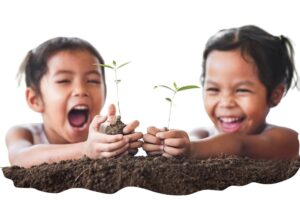The Ultimate Guide to GST Reconciliation : Ensuring Compliance and Accuracy
GST (Goods and Services Tax) reconciliation is a critical process for businesses operating under the GST regime in India. It involves matching the data of sales and purchases declared by the business with the data provided by their suppliers and customers. Accurate GST reconciliation helps avoid discrepancies, ensures compliance, and optimizes the claiming of Input Tax Credit (ITC). This guide delves into the importance, process, and best practices for GST reconciliation.
Why GST Reconciliation is Important
- Accuracy in Tax Filing: Ensures that all transactions are correctly reported, reducing the risk of errors in GST returns.
- Optimal ITC Claims: Helps in claiming the correct amount of ITC, as discrepancies can lead to ITC mismatches and subsequent denial of credit.
- Compliance: Avoids penalties, interest, and legal issues arising from mismatches or discrepancies in returns.
- Financial Health: Maintains the financial accuracy of the business, as discrepancies can lead to incorrect tax payments and affect cash flow.
Key Components
- GSTR-2A: A dynamic statement that reflects the details of inward supplies (purchases) from registered suppliers.
- GSTR-3B: A monthly summary return that taxpayers file, summarizing their outward supplies (sales) and tax liabilities.
- Books of Accounts: The financial records maintained by the business, detailing all transactions.
Steps in the GST Reconciliation Process
1.Data Collection:
- Gather GSTR-2A from the GST portal.
- Extract data from GSTR-3B and your books of accounts.
2.Data Matching:
- Compare the details in GSTR-2A with your purchase records.
- Ensure that the sales reported in GSTR-3B match with the sales recorded in your books.
3.Identify Discrepancies:
- Mismatched invoices: Check for differences in invoice numbers, dates, values, or GSTINs.
- Missing invoices: Identify invoices missing in either your records or the supplier’s GSTR-1.
- Duplicate entries: Detect any duplicate transactions that may lead to inflated tax liabilities.
4.Rectify Discrepancies:
- Communicate with suppliers: Request corrections in their GSTR-1 to resolve mismatches.
- Adjust records: Make necessary adjustments in your books to align with the reconciled data.
- Revise returns: Amend GSTR-3B or file a rectification in the subsequent return period if required.
5.Regular Monitoring:
- Conduct periodic reconciliations to catch discrepancies early.
- Stay updated with GST notifications and compliance requirements.
Tools for GST Reconciliation
- BGST Software: BSC Global’s BGST is dedicated GST reconciliation software that automates data matching and highlights discrepancies.
- Excel Sheets: For smaller businesses, Excel sheets can be a cost-effective way to manually reconcile data.
- Professional Services: Engage GST professionals or consultants for comprehensive reconciliation and compliance management.
Best Practices
- Regular Reconciliation: Conduct monthly reconciliations to stay on top of discrepancies.
- Accurate Data Entry: Ensure that all invoices are correctly entered into your accounting system.
- Timely Communication: Maintain regular communication with suppliers and customers to resolve mismatches promptly.
- Stay Informed: Keep abreast of GST laws and updates to ensure compliance with the latest requirements.
- Maintain Detailed Records: Keep thorough records of all communications, corrections, and reconciliations for future reference.
Conclusion
GST reconciliation is a vital part of maintaining compliance under the GST regime. It ensures that your tax filings are accurate, optimizes ITC claims, and prevents legal complications. By adopting systematic reconciliation processes and leveraging tools and best practices, businesses can navigate the complexities of GST with confidence and precision.
Regular and diligent reconciliation not only keeps you compliant but also enhances your financial health, paving the way for smoother operations and growth. Read More.


 RECOGNISED WORLD OVER SOLUTIONS
RECOGNISED WORLD OVER SOLUTIONS
 Find out how BSC GLOBAL digitally transformed P2P cycle for worlds renowned brand in Automobile
Find out how BSC GLOBAL digitally transformed P2P cycle for worlds renowned brand in Automobile







